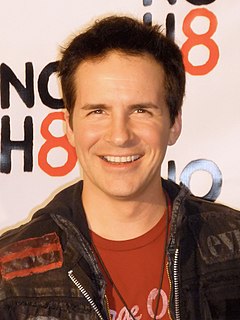A Quote by Kevin Warwick
I feel that we are all philosophers, and that those who describe themselves as a 'philosopher' simply do not have a day job to go to.
Quote Topics
Related Quotes
As individuals die every moment, how insensitive and fabricated a love it is to set aside a day from selfish routine in prideful, patriotic commemoration of tragedy. Just as God is provoked by those who tithe simply because they feel that they must tithe, I am provoked by those who commemorate simply because they feel that they must commemorate.
Even those who have desired to work out a completely positive philosophy have been philosophers only to the extent that, at the same time, they have refused the right to install themselves in absolute knowledge. They taught not this knowledge, but its becoming in us, not the absolute but, at most, our absolute relation to it, as Kierkegaard said. What makes a philosopher is the movement which leads back without ceasing from knowledge to ignorance, from ignorance to knowledge, and a kind of rest in this movement.
I tend not to attempt to describe pain. I don't feel I can comprehend or re-create the personal suffering of others, so I simply try to tell what happened, or what I imagine happened. I also think it helps to let the reader fill in a lot of the blanks. Melodrama is patronizing. With a straightforward statement, readers can figure out for themselves what's going on.
Men are not philosophers, but are rather very foolish children, who, by reason of their partiality, see everything in the most absurd manner, and are the victims at all times of the nearest object. There is even no philosopher who is a philosopher at all times. Our experience, our perception is conditioned by the need to acquire in parts and in succession, that is, with every truth a certain falsehood.
I was trained as a philosopher never to put philosophers and their ideas into historical contexts, since historical context has nothing to do with the validity of the philosopher's positions. I agree that assessing validity and contextualizing historically are two entirely distinct matters and not to be confused with one another. And yet that firm distinction doesn't lead me to endorse the usual way in which history of philosophy is presented.



































